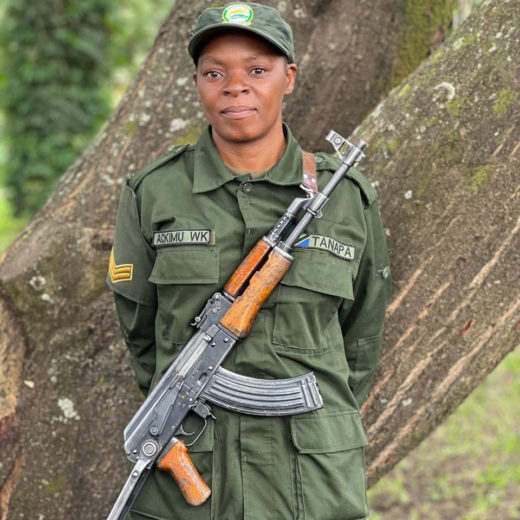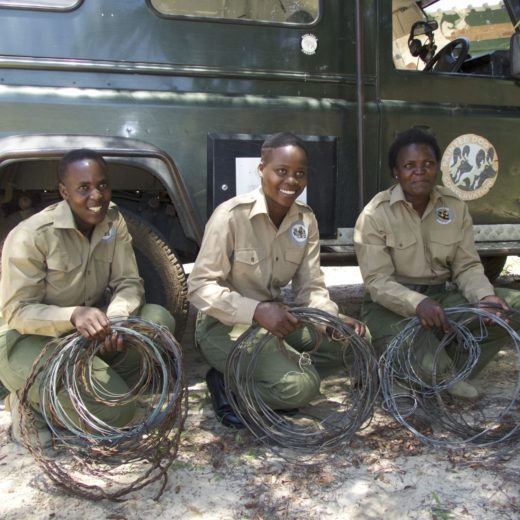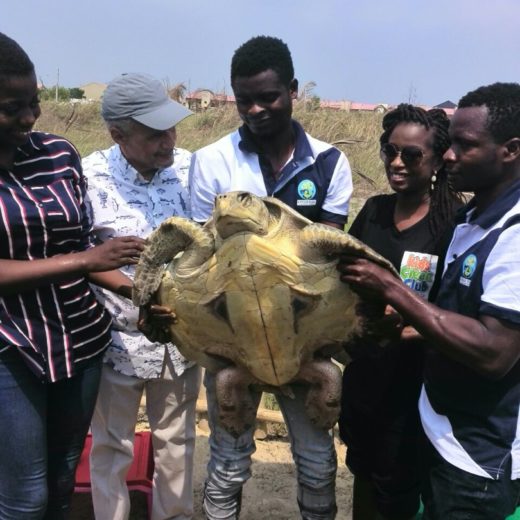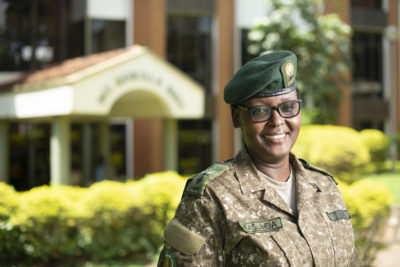
Margaret Kasumba is the first woman ever to head the law enforcement division at Uganda Wildlife Authority (UWA). Based at their Kampala headquarters, Kasumba supervises UWA’s entire ranger force, conducting operations to curtail wildlife crime countrywide as well as managing weapons and ammunition and overseeing the special wildlife crimes unit.
After joining in 2004, Kasumba underwent six months of paramilitary training, an experience she says she will never forget. “There were times when I wanted to run away, it was so harsh, but I would not change it for the world; it built my character and made me who I am today,” she said. “Whoever decided to send me to that training, you were onto a winner!”. These days when new rangers graduate from training, Kasumba is one of the parade leaders. Her example has encouraged many other female officers to take up leading the parade, citing Margaret as their inspiration to occupy the traditionally male role.
Kasumba says she immediately felt welcome as a woman at UWA. “There were three positions available, two of which went to women, and one to a man,” she said. “From the beginning I felt that UWA was a supportive environment in which women could progress into leadership roles. When I rose to my current position, I was the only female candidate to apply, and compared to when I started, we have so many women in our leadership now”. She says she feels supported by her supervisor, who does not treat her differently because of her gender and takes the attitude of “It’s her role, let her get on with it”.
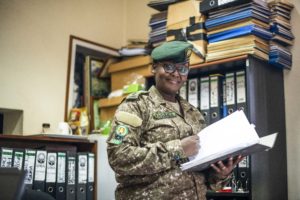

Kasumba says she was drawn to a career in wildlife conservation from an early age, after developing a love of animals inspired by her father’s tales of their family totem, the bushbuck (engabi). She was a dedicated member of her school wildlife club and felt that her future lay in being a defender and protector of both animal and human rights. This led her to pursue law qualifications with the aim of ensuring that the law is properly enforced.
Apart from her totem animal, the pangolin is Margaret’s favourite. She particularly remembers the rescue of a mother and baby tree pangolin from wildlife traffickers in 2017. “On the way to release them back into the wild, the baby died,” she said. “When her baby died, I saw the mother pangolin cry tears, real tears flowing from her eyes. And it was too much for me, I cried along with her”.
“Wild animals are part of God’s creation, we found them here and it is our responsibility to protect them for the benefit of our country and all Ugandans,” she said. “Those who were here before us protected wildlife, so now we have to carry on the responsibility before we hand over to the incoming generation.”
“Women have a huge role to play in wildlife conservation”, Kasumba added. “You don’t have to be part of UWA to be part of the movement either. We can influence our children, our husbands and our wider families and community to see things differently”.
Kasumba also walks the talk, raising four children who aim to be part of the next generation of conservationists.
Stay in touch and get the latest WildAid updates.
SIGN UPAbout WildAid
WildAid is a non-profit organization with a mission to protect wildlife from illegal trade and other imminent threats. While most wildlife conservation groups focus on protecting animals from poaching, WildAid primarily works to reduce global consumption of wildlife products such as elephant ivory, rhino horn and shark fin soup. With an unrivaled portfolio of celebrity ambassadors and a global network of media partners, WildAid leverages more than $308 million in annual pro-bono media support with a simple message: When the Buying Stops, the Killing Can Too.
Journalists on deadline may email communications@wildaid.org
